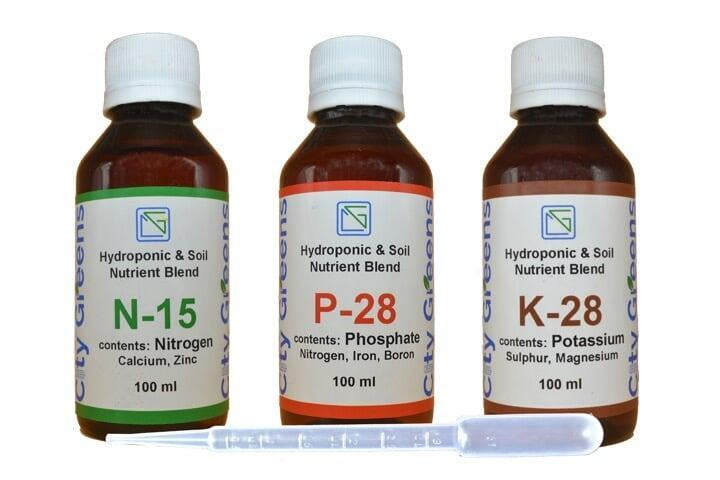Nitrogen (N)
Nitrogen aids in the process of photosynthesis. A lack of nitrogen will lead to chlorosis (a discolouring of leaves) and stunted growth. An adequate amount of nitrogen promotes healthy leaf growth and results in imparting a bright green colour to the leaves.
Phosphorus (P)
Phosphorus is necessary for energy transfer and consumption in various parts of plants. Phosphorus helps in promoting root growth, blooming, seed production and improving crop yield.
Potassium (K)
Potassium can be considered equivalent to a CPU (Central Processing Unit) of a plant. It regulates most of the vital functions within a plant, including internal moisture, water balance, and low-light photosynthesis. Potassium has a high impact on the end-quality of the fruit, including its shape, size, colour, and taste.
